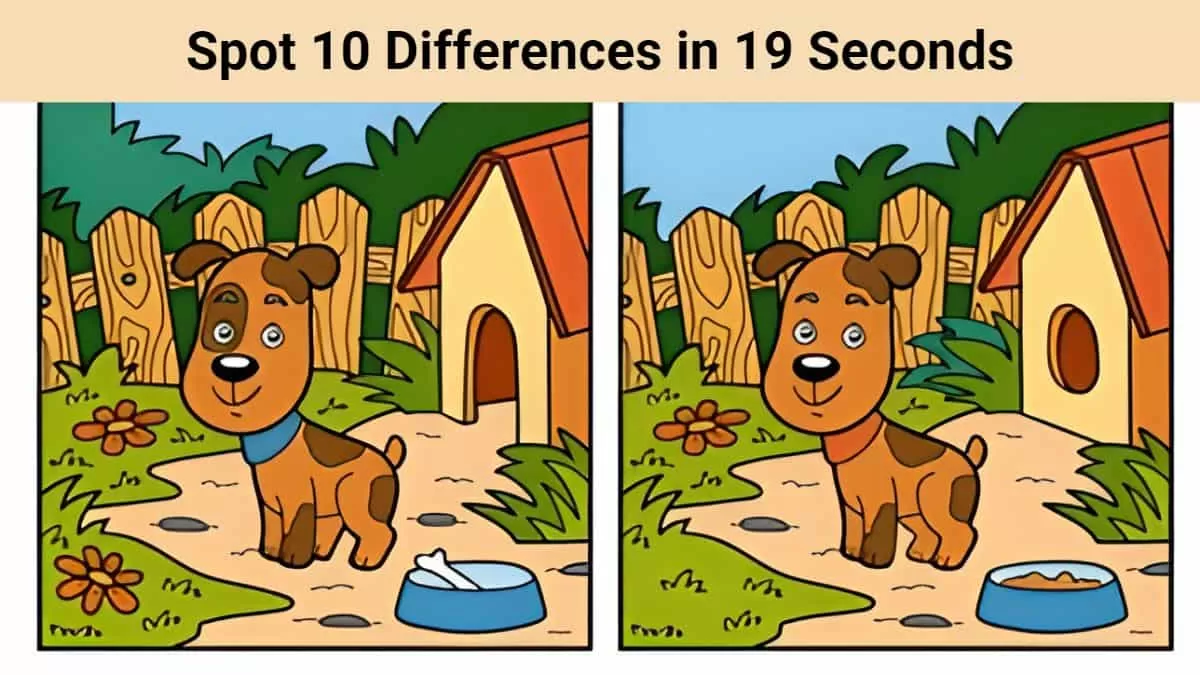How To Spot A Lying Spouse: Recognizing Signs Of Deceit
It can feel truly unsettling when you begin to suspect your partner isn't being completely open with you. That feeling, you know, where a tiny seed of doubt starts to grow, can shake the very foundation of trust in a relationship. It's a natural human reaction to want to understand what's happening, especially when something as fundamental as honesty seems to be missing. So, you might be looking for ways to figure out if your spouse is, perhaps, holding back the truth.
Sometimes, the truth can be hard to face, and the thought of a loved one being dishonest is a really tough pill to swallow. Yet, knowing how to catch deceit can be just as important a survival skill as knowing how to tell a lie and get away with it, as some might say. A person able to spot falsehood quickly is, in a way, less likely to be swindled by an unscrupulous business associate or hoodwinked by a devious spouse. Luckily, nature provides more than enough clues to trap dissemblers in their own words or actions, or so it seems.
This isn't about becoming a detective in your own home, but rather about understanding the subtle shifts that might signal something is amiss. We'll explore some common indicators and discuss how to approach these delicate situations. It's about finding clarity and, perhaps, finding a path forward, whatever that may look like for you and your relationship, so you know.
- Levar Burton Net Worth,html
- Emma Langevin Leak The Untold Story Behind The Viral Sensation,html
- Britt Barbie Leak The Untold Story Behind The Viral Sensation,html
- Nikki Sapp Nude The Truth Behind The Headlines,html
- Naomi Soraya Leak The Untold Story Behind The Viral Sensation,html
Table of Contents
- Understanding the Nature of Lies in Relationships
- Subtle Signs of Deception
- When Lying Becomes a Habit
- Confronting the Truth
- Seeking Support and Moving Forward
Understanding the Nature of Lies in Relationships
Lying in relationships can be incredibly damaging, but not all lies are the same, you know. There's a big difference, for instance, between a small, harmless fib about, say, what they had for lunch, and a significant deception that impacts the core of your shared life. Some lies, perhaps, are told to avoid hurting feelings, while others are about hiding something much more serious. It's important to consider the context and the impact of the dishonesty.
When lying becomes a habit for your spouse, it becomes easier and easier for them to lie about both the little and the big things in your relationship. Some habits can become so ingrained that they are second nature and almost, well, automatic. This kind of consistent dishonesty can really erode trust over time, making you question nearly everything. It's a gradual process, but it can be quite destructive, so it is.
They lie, particularly in relation to intimacy, which can be particularly painful. This kind of deceit touches on the very personal and vulnerable aspects of a partnership. It's not just about what is said, but also about what is withheld, and the emotional distance that creates. That kind of breach can feel very, very deep, too it's almost a betrayal of the emotional bond itself.
- Why Did Gino Quit His Job,html
- Ice Spice Nudes The Hottest Trend On Tiktok And Beyond,html
- Storm Stoppers Shark Tank Net Worth,html
- Was Mike Mccarthy A Steelers Fan,html
- What Did Prince Philip Call Princess Anne,html
Subtle Signs of Deception
The ability to detect lying in a partner isn’t always straightforward. Often, it’s the subtle signs that give things away, rather than big, obvious tells. These small cues can be easy to miss if you're not really paying attention, but they can build up to a larger picture of concern. It’s about noticing patterns and changes, you see, in how your partner typically behaves.
One of the top signs your spouse is hiding something from you is if your spouse can’t seem to leave the room without their smartphone and seem downright paranoid about you getting their hands on it. This kind of attachment, or rather, obsession, with a device can be a very telling indicator. It suggests there's something on that phone they absolutely do not want you to see, so it does.
Digital Clues and Smartphone Habits
The smartphone, as we just touched on, is a modern extension of ourselves, and its usage can reveal a lot. If your spouse suddenly becomes very protective of their phone, perhaps placing it face down when you are near, or taking it with them everywhere, even to the bathroom, that's a bit unusual. It’s not just about privacy, but about an almost anxious need to keep it out of your sight, which is that kind of behavior.
You might also notice them deleting messages or clearing their browsing history more frequently than before. Or maybe they are receiving texts or calls at odd hours and quickly dismissing them or stepping away to answer. These actions, in isolation, might not mean much, but when they become a consistent pattern, they can really raise a red flag. It’s about the change from their usual digital habits, you know, that really stands out.
Some people might even change their passwords or add new security measures to their devices that they never had before. This kind of sudden digital lockdown can feel very exclusionary and makes you wonder what they are trying to protect. It’s almost as if they are building a wall around their digital life, and that can be quite isolating for a partner, too it's almost.
Physical and Behavioral Tells
To tell if your spouse is lying to you, look for physical behaviors that indicate they aren’t being honest. These are often unconscious reactions that people exhibit when they are feeling stressed or uncomfortable about what they are saying. It's not foolproof, but it can offer some clues, so it can.
Watch them for excessive blinking when you start talking to them about an uncomfortable topic, as this can indicate that they are feeling anxious or trying to process a difficult situation. It’s a subtle cue, but it's one of those things that, if it's out of character, might mean something. People sometimes also touch their face or neck more often, which is a common stress response, too.
Sudden behavioral changes in your partner could be a good reason to start wondering if your partner may be lying about cheating or other significant issues. This isn't just about physical ticks, but about a broader shift in how they act. Perhaps they become more secretive, or they start avoiding eye contact when discussing certain subjects. These are the kinds of things that can make you feel uneasy, you know.
They might also become unusually defensive or irritable when questioned, even about small things. This overreaction can be a way to deflect attention from the real issue. It’s like they are trying to create a distraction, so you stop digging deeper. This kind of response, too, is often a sign of discomfort with the truth, or so it appears.
Changes in Communication Patterns
Beyond physical tells, how your spouse communicates can also change when they are being dishonest. If her timeline of events keeps shifting, or the details don’t quite match up each time she tells the story, she may not be honest. Inconsistencies in their narrative are a pretty clear indicator that they are fabricating parts of their story, or perhaps, the whole thing. It’s hard to keep a lie straight, after all, especially over time.
They've become really good at lying at the little, innocuous things, which can then make it easier to lie about bigger issues. This gradual progression means that even small, seemingly unimportant lies can be part of a larger pattern of deceit. It's like they are practicing, in a way, for the bigger deceptions. So, paying attention to even the minor untruths can be quite telling, you know.
A sudden lack of transparency or a reluctance to discuss certain topics can also be a sign. If your partner used to share everything with you, and now they are holding back, that’s a significant shift. It creates a feeling of distance and can leave you feeling shut out. This change in openness is a rather strong indicator that something is being hidden, or so it seems.
When Lying Becomes a Habit
When lying becomes a habit for your spouse, it becomes easier and easier for them to lie about both the little and the big things in your relationship. This kind of serial dishonesty means that truth becomes secondary, or even irrelevant, to their communication style. If your husband lies about everything, it means he is a serial liar, and that's a very serious issue for any relationship. It's a deep-seated pattern, you see.
Some habits can become so ingrained that they are second nature and almost, well, automatic. This makes it incredibly difficult for the person to stop, even if they want to. It's not just about a single lie, but a way of life. This can be very frustrating for the partner who is constantly seeking the truth, too it's almost like chasing a moving target.
Understanding the difference between pathological and compulsive lying can help, if you’ve found yourself thinking, “my partner is a pathological liar” or struggling with how to deal with a liar in a relationship. Pathological lying often serves no clear purpose, while compulsive lying is a reaction to avoid negative consequences. Both are damaging, but recognizing the type of lying might help you understand the root of the problem, so it might.
Confronting the Truth
When you suspect your spouse is lying, especially about something significant like infidelity, approaching the topic needs careful thought. You might be unable to stop overthinking every detail, have feelings of suspicion, and develop trust issues. These feelings won’t disappear until you find the truth to your concerns, so addressing it is quite important.
Rather than keeping this situation to yourself, tell those you are close to about what you have been through, or what you are going through. Allowing yourself to lean on your loved ones as you recover from being deceived is crucial. They can offer a fresh perspective and much-needed emotional support, you know, when you are feeling isolated.
Just tell your partner you suspect he or she is cheating and leave it at that, if that's your concern. Allow your spouse or partner to admit or deny the affair before you reveal your proof. If he or she admits the behavior, let your spouse keep talking and reveal as much as possible before offering your evidence. You might get more information than you possess, which can be very helpful, actually.
The goal is to get to the truth, not necessarily to win an argument. Approaching the conversation with a calm, clear mind, even though it's incredibly difficult, can lead to a more productive outcome. It's about opening a dialogue, so to speak, rather than launching an attack. This approach, you see, can sometimes encourage honesty.
Seeking Support and Moving Forward
Discover signs of a lying spouse and how to cope with the deception. This journey can be emotionally draining, and you don't have to walk it alone. Getting support is a really vital step, whether that means talking to friends, family, or a professional. It's about having a network of people who care about your well-being, and who can offer guidance, so it is.
Get support and learn when it's time to leave a dishonest husband. Not all lies are created equal, and some can be worked through with effort and commitment from both sides. However, there are times when the lying is so pervasive or damaging that staying in the relationship is no longer healthy for you. Recognizing this point is crucial for your own emotional health, too it's almost a form of self-preservation.
As a couples counsellor, I’ve seen many men who desperately wanted to know the signs of a cheating wife, and women who sought similar answers. The pain that will be caused if any of the spouses decides to cheat is indescribable. Reflect, as a man, a woman, as a partner, on what you truly need from your relationship. This reflection can guide your next steps, you know, towards a healthier future.
Sometimes, professional help, like therapy or counseling, can provide a safe space to explore these issues. A therapist can help both partners communicate more effectively and work through the underlying reasons for the dishonesty. It's about rebuilding trust, if that's possible, or finding a way to move on with dignity and strength. Learn more about relationship trust on our site, and for additional insights, you might also want to visit this page .
Frequently Asked Questions (FAQs)
What are the most common signs a spouse is being dishonest?
Common signs often include changes in behavior, such as increased secrecy around their phone, inconsistencies in their stories, or becoming unusually defensive when asked questions. You might also notice physical cues like excessive blinking or avoiding eye contact when discussing sensitive topics, too it's almost.
How should I approach my spouse if I suspect they are lying?
It's generally helpful to approach the conversation calmly and directly, stating your observations rather than making accusations. Allow them space to respond, and be prepared for denial. Having some evidence, if you have it, can be helpful, but let them speak first. It's about opening a dialogue, so it is.
Can a relationship recover after a spouse has been caught lying?
Yes, some relationships can recover, especially if the lying spouse is truly remorseful and committed to change. Recovery often requires open communication, professional counseling, and a lot of effort to rebuild trust over time. It depends on the severity of the lies and the willingness of both partners to work through it, you know, together. For more insights on relationship health, you could check out resources from reputable organizations like the American Psychological Association.



Detail Author:
- Name : Richard Gerhold I
- Username : goconnell
- Email : emarvin@windler.biz
- Birthdate : 1982-02-18
- Address : 6840 Zoie Village Suite 500 Waylonshire, ME 57141-5891
- Phone : 972-408-4715
- Company : Hahn-Kilback
- Job : Electrotyper
- Bio : Voluptatem voluptate sed in culpa facilis maiores excepturi. Commodi expedita odit ipsam velit saepe. Id occaecati nam facilis et voluptatibus.
Socials
facebook:
- url : https://facebook.com/paolo.hermiston
- username : paolo.hermiston
- bio : Et adipisci est placeat architecto pariatur.
- followers : 995
- following : 2398
instagram:
- url : https://instagram.com/paolo_hermiston
- username : paolo_hermiston
- bio : Deserunt numquam sed eius. Veritatis in reprehenderit nihil consectetur eos sit id.
- followers : 3673
- following : 2869
twitter:
- url : https://twitter.com/paolohermiston
- username : paolohermiston
- bio : Quo dolorem quia doloribus voluptatem impedit sed. Velit sapiente odit voluptatum doloribus ipsam quo enim nihil. Voluptas aut asperiores modi aut.
- followers : 845
- following : 2795